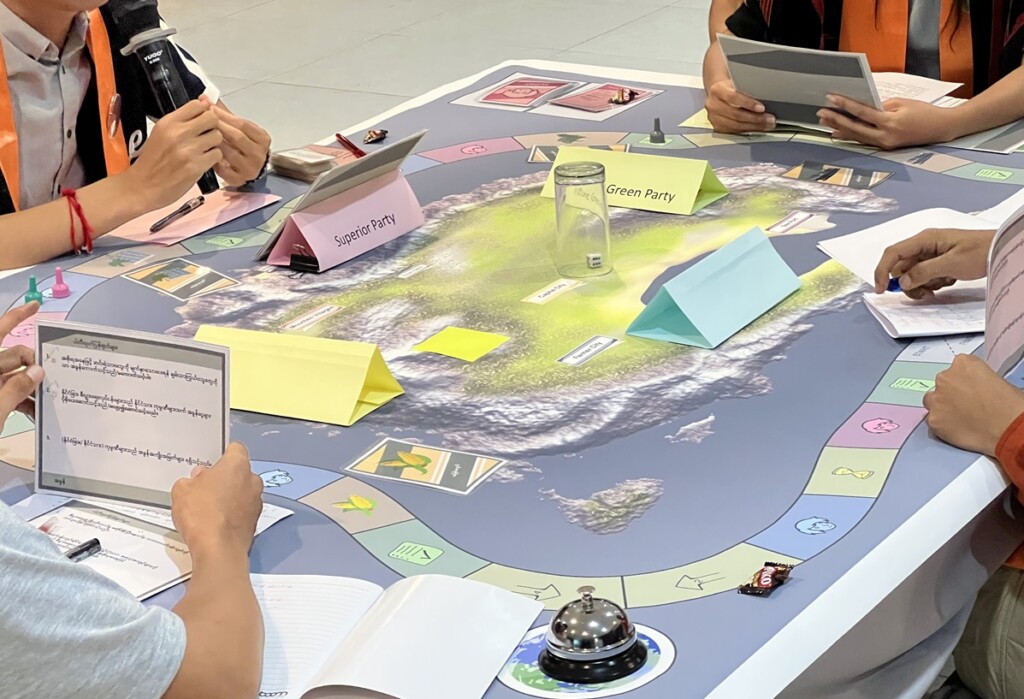
Preserving democratic values under military rule
Myanmar is a multi-ethnic country that had taken steps towards democracy since 2011 after the military junta was gradually overthrown. The country had opened up to the world and its economic growth was fast until the military coup in February 2021. A milestone was reached in 2015 when the country held the first relatively free general elections. According to local and international observers, the 2020 elections were also mostly free and fair, although voting was cancelled in several constituencies due to security reasons. Former opposition party National League for Democracy (NLD) got a landslide victory in both elections. However, the 2008 constitution still guaranteed one fourth of parliamentary seats to the military, so multi-party reforms have not been easy to realise and the general political situation remained unstable. The military has continued to exercise much power in the country, and it seized power in February 2021, claiming that there had been electoral fraud.
Despite the longstanding formal peace process which is now being steered by the junta, there are protracted conflicts in many parts of Myanmar between ethnic groups and the military which have been magnified by the coup. There is a diverse array of political parties on both sides of the conflict which most are small and based on ethnic groups. Developing an open, responsible and participatory democracy is important in the country’s pursuit of becoming a stable, peaceful and equal society.
Our work in Myanmar
Demo Finland, in partnership with the Netherlands Institute for Multiparty Democracy (NIMD), held democracy education programmes and supported multi-party co-operation and capacity building in Myanmar from 2014 to 2021 through the Myanmar School of Politics (MySoP). MySoP courses took place in five eastern States/Regions in Myanmar (Kayin, Kayah, Mon, Shan and Tanintharyi) and in the Yangon Region. The alumni, from more than 40 different parties, number over 300. In addition to training politicians, MySoP aimed at strengthening democratic ways of doing politics and multi-party dialogue on a practical level. The first permanent multi-party dialogue platform was set up in Shan State in 2018. This platform has, among other things, produced joint bills at the state level. Drawing up joint initiatives based on dialogue is a significant step forward in a country where multi-party co-operation is new and where there are still ongoing conflicts between many actors.
Following the coup, NIMD and Demo Finland constantly assessed possibilities to continue working for Myanmar. Specifically, the NIMD Myanmar team looked at ways to continue supporting the women, youth and ethnic leaders who are actively leading change and will play vital roles in future democratic processes. While doing so Demo Finland followed the most recent rules and policies set by the European Union and the Ministry for Foreign Affairs of Finland.
The Power of Dialogue (POD) programme – jointly funded by NIMD and Demo Finland – aims to empower these leaders with political knowledge and skills so that they can effectively influence and contribute to a functioning federal democratic society for the future of Myanmar.
NIMD Myanmar’s democracy education courses focus on political theory, dialogue, gender equality and best practices in politics. Also, NIMD Myanmar focuses on capacity building and supporting democratic dialogue processes at the subnational level. At both the subnational and national level, the preservation of democratic values and skills is more necessary than ever to exit the current crisis.
Demo Finland’s and NIMD’s work through NIMD Myanmar is funded by the Ministries for Foreign Affairs of Finland and the Netherlands.
Results of our work
- The Myanmar programme was the first intensive multi-party training programme in the country at the State/Region level.
- It has trained over 300 politicians from more than 40 different parties.
- More than 200 politicians trained and ran as candidates in the 2020 elections. 41 were elected to the position they applied for, mainly in the State/Region Parliaments.
- One third of these candidates, as well as those who got elected, were women, which is well above the national average.
- Before the coup, one third of our alumni stated that they worked with representatives of other political parties monthly.
- A network of women politicians from 26 parties was launched in Shan State to promote gender equality within parties and in their politics.
- More than 70% of the parties participating in the programme have taken steps to promote gender equality within parties.
- After attending the first democracy school training after the coup, political actors who had been in the dark for two years expressed that they felt a renewed sense of motivation to continue finding political solutions and dialogue to identify and address issues in their State/Region.
